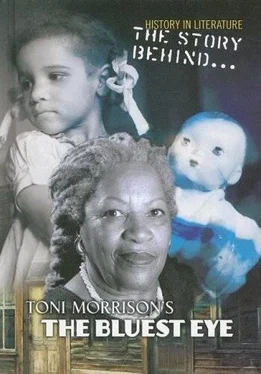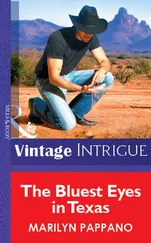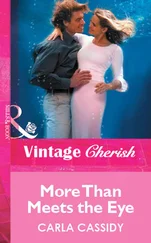"Will it pass?" asked Aunt Jimmy. "Is I'm gone be all right?"
"I reckon." M'Dear turned and left the room. The preacher put her in his buggy to take her home. That evening the women brought bowls of pot liquor from black eyed peas, from mustards, from cabbage, from kale, from collards, from turnips, from beets, from green beans. Even the juice from a boiling hog jowl. Two evenings later Aunt Jimmy had gained much strength. When Miss Alice and Mrs. Gaines stopped in to check on her, they remarked on her improvement. The three women sat talking about various miseries they had had, their cure or abatement, what had helped. Over and over again they returned to Aunt Jimmy's condition. Repeating its cause, what could have been done to prevent the misery from taking hold, and M'Dear's infallibility. Their voices blended into a threnody of nostalgia about pain. Rising and falling, complex in harmony, uncertain in pitch, but constant in the recitative of pain. They hugged the memories of illnesses to their bosoms. They licked their lips and clucked their tongues in fond remembrance of pains they had endured-childbirth, rheumatism, croup, sprains, backaches, piles. All of the bruises they had collected from moving about the earth-harvesting, cleaning, hoisting, pitching, stooping, kneeling, picking-always with young ones underfoot. But they had been young once. The odor of their armpits and haunches had mingled into a lovely musk; their eyes had been furtive, their lips relaxed, and the delicate turn of their heads on those slim black necks had been like nothing other than a doe's. Their laughter had been more touch than sound. Then they had grown.
Edging into life from the back door. Becoming. Everybody in the world was in a position to give them orders. White women said, "Do this." White children said, "Give me that." White men said, "Come here." Black men said, "Lay down." The only people they need not take orders from were black children and each other.
But they took all of that and re-created it in their own image.
They ran the houses of white people, and knew it. When white men beat their men, they cleaned up the blood and went home to receive abuse from the victim. They beat their children with one hand and stole for them with the other. The hands that felled trees also cut umbilical cords; the hands that wrung the necks of chickens and butchered hogs also nudged African violets into bloom; the arms that loaded sheaves, bales, and sacks rocked babies into sleep. They patted biscuits into flaky ovals of innocence-and shrouded the dead. They plowed all day and came home to nestle like plums under the limbs of their men. The legs that straddled a mule's back were the same ones that straddled their men's hips. And the difference was all the difference there was. Then they were old. Their bodies honed, their odor sour.
Squatting in a cane field, stooping in a cotton field, kneeling by a river bank, they had carried a world on their heads. They had given over the lives of their own children and tendered their grandchildren. With relief they wrapped their heads in rags, and their breasts in flannel; eased their feet into felt. They were through with lust and lactation, beyond tears and terror. They alone could walk the roads of Mississippi, the lanes of Georgia, the fields of Alabama unmolested. They were old enough to be irritable when and where they chose, tired enough to look forward to death, disinterested enough to accept the idea of pain while ignoring the presence of pain. They were, in fact and at last, free. And the lives of these old black women were synthesized in their eyes-a puree of tragedy and humor, wickedness and serenity, truth and fantasy.
They chattered far into the night. Cholly listened and grew sleepy. The lullaby of grief enveloped him, rocked him, and at last numbed him. In his sleep the foul odor of an old woman's stools turned into the healthy smell of horse shit, and the voices of the three women were muted into the pleasant notes of a mouth organ. He was aware, in his sleep, of being curled up in a chair, his hands tucked between his thighs. In a dream his penis changed into a long hickory stick, and the hands caressing it were the hands of M'Dear. On a wet Saturday night, before Aunt Jimmy felt strong enough to get out of the bed, Essie Foster brought her a peach cobbler. The old lady ate a piece, and the next morning when Cholly went to empty the slop jar, she was dead. Her mouth was a slackened O, and her hands, those long fingers with a man's hard nails, having done their laying by, could now be dainty on the sheet. One open eye looked at him as if to say, "Mind how you take holt of that jar, boy." Cholly stared back, unable to move, until a fly settled at the corner of her mouth. He fanned it away angrily, looked back at the eye, and did its bidding. Aunt Jimmy's funeral was the first Cholly had ever attended. As a member of the family, one of the bereaved, he was the object of a great deal of attention. The ladies had cleaned the house, aired everything out, notified everybody, and stitched together what looked like a white wedding dress for Aunt Jimmy, a maiden lady, to wear when she met Jesus. They even produced a dark suit, white shirt, and tie for Cholly. The husband of one of them cut his hair. He was enclosed in fastidious tenderness. Nobody talked to him; that is, they treated him like the child he was, never engaging him in serious conversation; but they anticipated wishes he never had: meals appeared, hot water for the wooden tub, clothes laid out. At the wake he was allowed to fall asleep, and arms carried him to bed.
Only on the third day after the death-the day of the funeral-did he have to share the spotlight. Aunt Jimmy's people came from nearby towns and farms. Her brother O. V., his children and wife, and lots of cousins. But Cholly was still the major figure, because he was "Jimmy's boy, the last thing she loved," and "the one who found her." The solicitude of the women the head pats of the men, pleased Cholly, and the creamy conversations fascinated him. "What'd she die from?"
"Essie's pie."
"Don't say?"
"Uh-huh. She was doing fine, I saw her the very day before. Said she wanted me to bring her some black thread to patch some things for the boy. I should of known just from her wanting black thread that was a sign."
"Sure was."
"Just like Emma. 'Member? She kept asking for thread. Dropped dead that very evening."
"Yeah. Well, she was determined to have it. Kept on reminding me. I told her I had some to home, but naw, she wanted it new. So I sent Li'l June to get some that very morning when she was laying dead. I was just fixing to bring it over, 'long with a piece of sweet bread. You know how she craved my sweet bread."
"Sure did. Always bragged on it. She was a good friend to you."
"I believe it. Well, I had no more got my clothes on when Sally bust in the door hollering about how Cholly here had been over to Miss Alice saying she was dead. You could have knocked me over, I tell you."
"Guess Essie feels mighty bad."
"Oh, Lord, yes. But I told her the Lord giveth and the Lord taketh away. Wasn't her fault none. She makes good peach pies.
But she bound to believe it was the pie did it, and I 'spect she right."
"Well, she shouldn't worry herself none 'bout that. She was just doing what we all would of done."
"Yeah. 'Cause I was sure wrapping up that sweet bread, and that, could of done it too."
"I doubts that. Sweet bread is pure. But a pie is the worse thing to give anybody ailing. I'm surprised Jimmy didn't know better."
"If she did, she wouldn't let on. She would have tried to please.
You know how she was. So good."
"I'll say. Did she leave anything?"
"Not even a pocket handkerchief. The house belongs to some white folks in Clarksville."
"Oh, yeah? I thought she owned it."
Читать дальше











